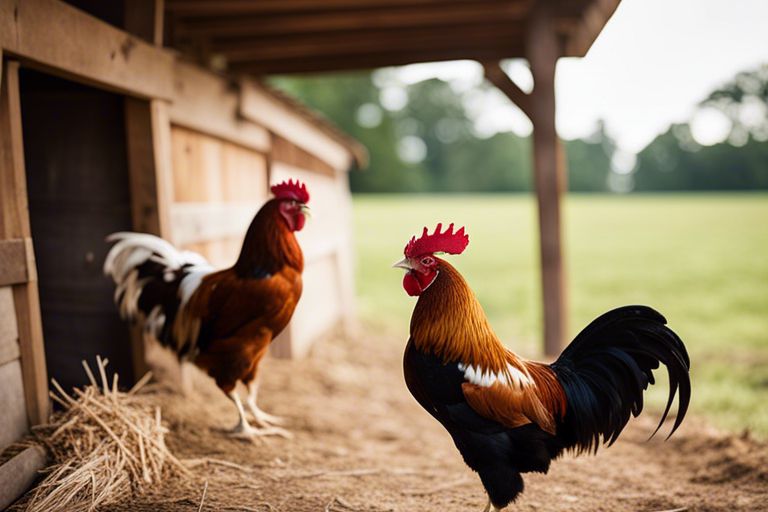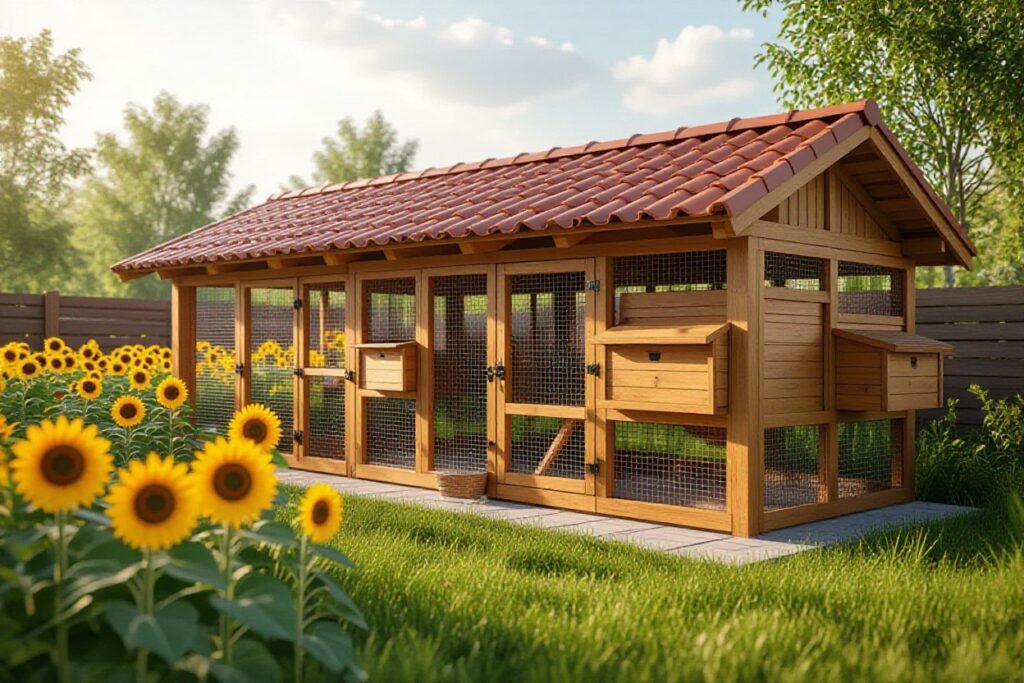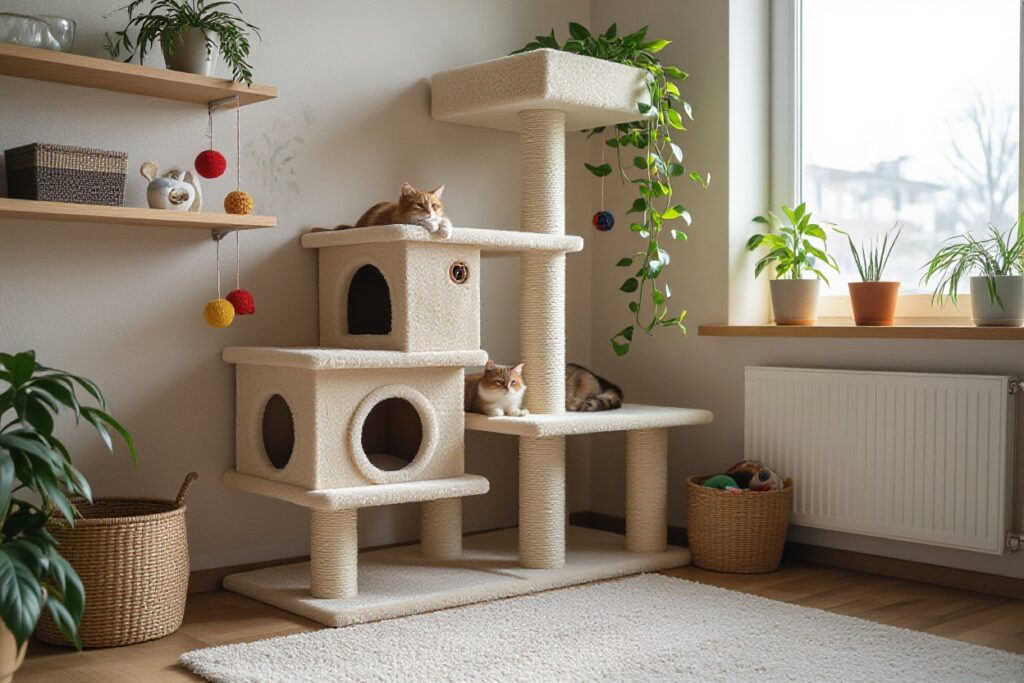In the matter of preventing rooster fights and ensuring the safety of your birds, there are several key strategies that every poultry keeper should be aware of. Rooster fights can lead to injuries, stress, and even death among your flock, making it crucial to take proactive measures to prevent aggression and maintain a peaceful environment. By implementing proper management techniques and understanding the dynamics of rooster behavior, you can create a harmonious coop where your birds can thrive without the threat of conflict.
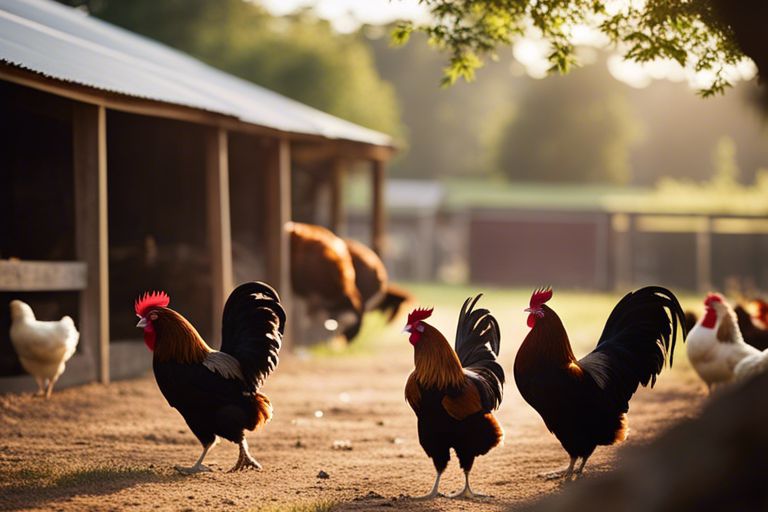
Identifying Aggression Triggers
Pecking Order and Territorial Behavior
One key trigger for rooster fights is the establishment of a pecking order within the flock and territorial behavior. Roosters can be aggressive towards one another as they compete to be the dominant bird. Signs of aggression may include puffing up their chest, raising their hackles, and charging at other birds. It’s important to observe your flock and intervene if necessary to prevent serious injuries.
Environmental Stressors
Any change in the environment of your birds can also trigger aggression. This could include overcrowding, lack of food or water, sudden loud noises, or the presence of predators. Roosters may become more aggressive when they feel their safety or resources are threatened. It’s important to provide a comfortable and secure environment for your flock to minimize these stressors.
To reduce the likelihood of rooster fights, it’s crucial to address and eliminate any potential triggers that may lead to aggression. By understanding the factors that can provoke aggressive behavior in roosters, you can create a harmonious environment for your birds and keep them safe from harm.
Behavioral Training and Management
Socialization Techniques
There’s no denying that proper socialization techniques can play a crucial role in preventing rooster fights. Introducing new birds to the flock gradually and under supervision can help them establish a pecking order without resorting to aggression. Providing ample space, resources, and opportunities for interaction can foster positive relationships among the birds, reducing the likelihood of conflicts.
Implementing Distraction Strategies
An effective way to prevent rooster fights is by implementing distraction strategies. By providing environmental enrichment such as toys, perches, and hiding spots in the coop, you can redirect the birds’ attention and energy towards more productive and engaging activities. Additionally, placing treats or food puzzles strategically can help alleviate boredom and minimize aggressive behavior among the flock.
Plus, consider utilizing visual barriers or obstacles to create partitions within the coop, allowing birds to have space away from each other when needed. This can help reduce territorial disputes and promote a harmonious cohabitation environment.
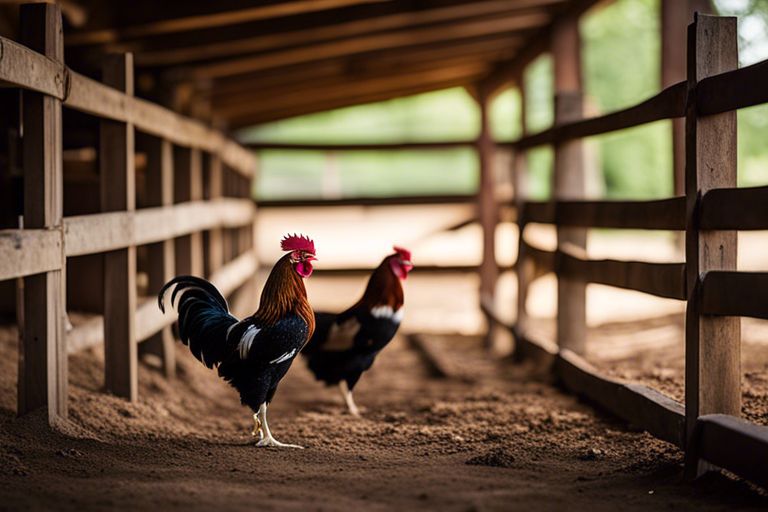
Environmental Adjustment
Creating Safe and Spacious Coops
One of the key ways to prevent rooster fights is to provide your birds with safe and spacious living quarters. Make sure the coop is well-built and free from any sharp edges or protruding objects that could potentially cause harm. Additionally, ensure that each bird has enough space to move around comfortably and establish their own territory.
Managing Flock Dynamics
Creating a harmonious flock dynamic is vital in preventing rooster fights. Introducing new birds to the flock should be done gradually, allowing them to establish a hierarchy without resorting to aggression. Keep an eye on any signs of bullying or aggression, and be prepared to intervene if necessary.
Spacious coops offer ample room for birds to establish their own territories and reduce the likelihood of fights breaking out due to overcrowding. Adequate space also allows birds to move around freely and engage in natural behaviors, leading to a healthier and happier flock overall.
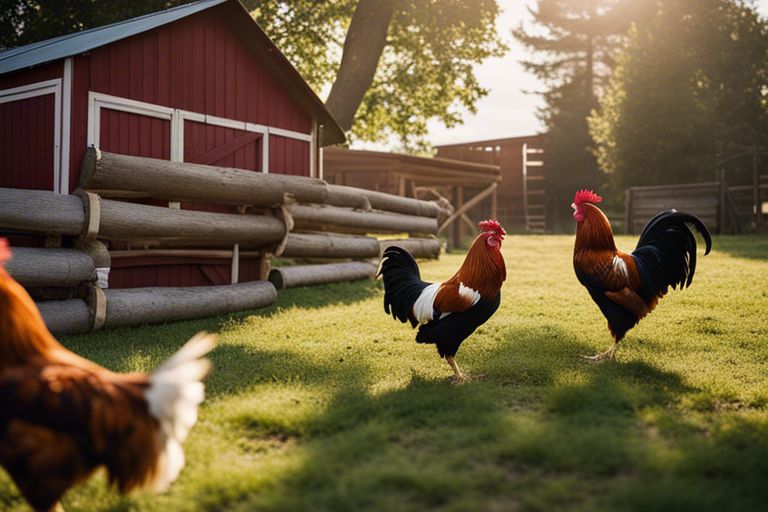
Legal and Ethical Considerations
Understanding Rooster Fight Bans
Considerations surrounding rooster fight bans are crucial for both legal and ethical reasons. Many countries and states have laws in place that prohibit animal fighting, including rooster fights. These bans are put in place to prevent animal cruelty and protect the well-being of animals involved in such practices. It is imperative for bird owners to be aware of these laws and ensure compliance to avoid legal repercussions and promote ethical treatment of animals.
Promoting Animal Welfare
Rooster owners play a significant role in promoting animal welfare by providing a safe and caring environment for their birds. This includes proper housing, access to food and water, and regular veterinary care. Additionally, responsible ownership involves socializing roosters to prevent aggressive behavior, as well as seeking alternative activities for stimulation. By prioritizing the well-being of their birds, owners can contribute to the overall welfare of animals in their care and help prevent unnecessary suffering.
Another aspect of promoting animal welfare in roosters is by advocating for stricter regulations and enforcement against illegal activities such as rooster fighting. By supporting organizations and initiatives that work towards protecting animals from harm, individuals can make a positive impact in promoting a more compassionate society for all living beings.
Final Words
So, by implementing the necessary measures and precautions discussed above, you can effectively prevent rooster fights and ensure the safety and well-being of your birds. Note, proper housing, adequate space, socialization, and monitoring can go a long way in maintaining a peaceful and harmonious environment among your flock. By being proactive and attentive to the behaviors and dynamics within your flock, you can create a safe and stress-free environment for your roosters to thrive in. It is imperative to prioritize the welfare of your birds and take necessary steps to prevent any aggressive behavior that may lead to fights. By following these guidelines, you can enjoy a happy and healthy flock of roosters without the risk of unnecessary conflicts.
FAQ
Q: Why is it important to prevent rooster fights?
A: Rooster fights can result in serious injuries or even death to the birds involved. Preventing these fights is crucial to ensure the safety and well-being of your birds.
Q: What are some ways to prevent rooster fights?
A: Providing enough space, separating aggressive birds, and introducing new flock members properly are some effective ways to prevent rooster fights.
Q: How much space do roosters need to prevent fights?
A: Roosters require at least 10 square feet of space per bird to minimize aggression and territorial behavior that can lead to fights.
Q: How can I identify aggressive roosters in my flock?
A: Aggressive roosters may display behaviors such as puffing up their feathers, attacking other birds, or making loud, aggressive noises. Observing their interactions with other birds can also help identify aggressive behavior.
Q: Is it possible to train roosters to be less aggressive?
A: Yes, roosters can be trained through consistent handling, positive reinforcement, and establishing dominance as the flock leader. However, some roosters may have inherently aggressive traits that are difficult to change.
Q: Should I intervene if a rooster fight breaks out?
A: It is best to avoid intervening physically in a rooster fight, as you may get injured in the process. Instead, use distractions like loud noises or water spray to separate the birds and prevent further aggression.
Q: What should I do if a rooster is injured in a fight?
A: Immediately isolate the injured rooster in a quiet, comfortable area and assess the extent of the injuries. Clean and treat any wounds, and monitor the bird closely for signs of infection or distress. Consult a veterinarian if necessary.
